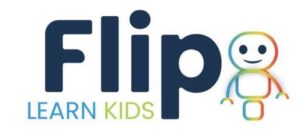Language is a powerful tool of communication. It helps users pass messages, decode meaning and facilitate greater understanding. While it plays a critical role in the communication process, its structure, usage and forms remain significant. This significance is hinged on established and generally acceptable norms and structure that have endured generations.
But with the advent of social media, use of language and communication process are beginning to undergo changes.
When the Blackberry Messenger was launched on August 1, 2005, the term ‘pinging’ took centrestage and people worldwide embraced the concept of chatting with others in real time across different Blackberry devices.
The success of the Blackberry phenomenon, especially on its social media experiment and impact, gave rise to a new wave of social media networking and chat platforms all trying to integrate people globally into what is now known as a ‘global village’.
Since then, many social media chat platforms such as Facebook in 2004, Twitter (2006), WhatsApp (2009), Messenger (2011), WeChat (2011), Viber (2010) and Telegram (2013), among others, were established.
In recent years, the social media frenzy has become so huge that companies also introduced pictures and video sharing platforms such as Instagram (2010), Weibo (2009), Likee (2017) and TikTok (2018), among others.
With the new wave of socialisation online, which is fast paced, online community have developed its own ethos that guide the communication process. Because of the transient nature of the social media and fast pace of communication, to achieve a certain level of brevity, interactions on these platforms have devolved into different peculiar languages, slangs and abbreviations.
These social media slangs have evolved into strong communication tools that youths have embraced and use heavily in their chats and interactions both online and offline.
But more worrisome is that many young people could not differentiate between their use on social media and in formal writings, academic matters and examinations.
Speaking on the danger the trend poses to learning, Education Administrator, Adeyemi Federal University of Education, Ondo, Emmanuel Taiwo Akinola, expressed concern that slangs, social medial language and abbreviations have continued to erode quality communication even in academic activities of students at all levels.
Akinola said language is an important aspect of communication because it is considered as “the medium or means to convey ideas, a system of arbitrary vocal symbols based on social cooperation; the totality of meaningful utterance in any given society.
“It is established that languages are used in different social contexts and different variables account for the peculiarity in which communication is carried out. One of them is social media that allows much communication.
“Communication could be formal or informal, but the way language is used by participants determines what it achieves. Communication through the social media in the 21st century is a serious phenomenon, which is really growing and gaining more prominence globally at all levels, both formal and informal.
“Communication through social media enables people to interact or communicate with a much larger number of people on a global scale, which has a serious influence on writing.”
Akinola stated that use of slangs and abbreviations affect students’ writing skills negatively, which in turn, affects their performances through communication.
He said many lecturers, teachers and even parents have noticed the creeping influence of social media on academic performance of students when marking assignments, class works and examination scripts.
“It has been observed that some students appear addicted to using slangs and abbreviations in their school notes writing, assignments and examinations. These students often have troubles and difficulties switching from use of slang and abbreviations during examinations to proper use of English grammar. These acts of students throw examiners into confusion as they find it difficult to understand such works.
“This also makes students completely forget correct spelling and pronunciations of some particular words in the English Language. The rise in the use of social media language, slangs and abbreviations continue to impair formal writing skills and educators and academics are yet to build a consensus on how to fix the growing problem. With this situation, the future is unclear as more generation of students grow up with technology that embraces slangs and abbreviations,” he said.
Akinola, however, noted that it is important for lecturers, teachers, parents and religious bodies to point out the difference between professional writing and common slangs and abbreviations to students at their own levels to correct the abnormality caused by social media languages.
“On the part of students, they too must make a choice on whether to inculcate the use of proper English to succeed in their academic activities. Education regulatory agencies should as a matter of necessity, do periodic checks on public and private schools, interact with teachers and students, as well check notebooks without prior notification, this will infuse fear in the students and enable them to inculcate the habit of proper use of English language,” he said.
An Abuja-based teacher, Hope Lawrence, observed that on many occasions, students use abbreviations in official communications between teachers and students, particularly during exams, essay writing, thesis or research writing.
“They come off using slangs unaware of their usage until later. This is because too much of these slangs are stored up in their memory because they form the major part of their social interactions daily, depending on how much of their time is spent on most of these social apps and this impacts on their ability to use language for appropriate expression.
“The implication of this goes beyond wrong or inappropriate use of language. This is something that has the ability to change the entire language structure of a generation and may likely be incorporated into some updated version of English dictionary in the future.
“Although, an in depth research is required to understand the level of impact it already has on education in general, it is important to also take note of the fact that language evolves over time,” she said.
Unfortunately, Lawrence argued that not much is being done towards understanding the trend. She, however, believes there is so much that can be learnt and developed from it.
“New topics can emerge and be taught to younger children to help them understand and differentiate between social media slangs and actual languages of communication, which are both contextual and relevant to the environment and situation.
“Students who are able to use appropriate language in communication should be rewarded to encourage others,” she advised.
A staff in the Department of Business Administration, Bowen University, Iwo, Osun State, Julianah Adeyi-Akintunde, said in any society, communication is effective only when the transfer of information from the originator is received with meaning or understanding by the receiver.
Adeyi-Akintunde stressed that for information to be meaningful, appropriate use of English language is mandatory.
She said: “It is worrisome that slangs has become the order of the day both in formal and informal settings. This is negatively affecting education as secondary school students and undergraduates are now fond of using such languages.
She identified some of the effects of the trend to include lack of effective communication skills, perpetual failure in the use of language in academics, creating confusion for teachers and lecturers during marking of assignments, examination scripts and assessments.
Adeyi-Akintunde listed others to include importing wrong teaching into younger learners during internships or teaching practice exercise and making students inferior during public debates and symposia.
As a way out of the problem, Adeyi-Akintunde said there is need to impose sanctions on those who use slangs during classes or while writing, ensure through supervision of academic activities, regular monitoring of classwork by teachers and parents and need to bring back marking notes by teachers.
She canvassed the introduction of incentives for proper use of English language in schools, and need to encourage reading culture among students.
She also urged government to come up with regulations on wrong use of languages in schools.
Admission Desk Officer, Adeyemi Federal University of Education, Ondo, Godwin Omotoyinbo, said going by situations in Nigerian schools, social interactions, using social media languages, are hampering learning as communication skills such as writing, reading and speaking are being affected.
He said: “The way students communicate with one another through social media and text messaging apps is gradually creeping into the classrooms.
“Some terms, which are slangs in texts are used by students in formal communications. Terms like ‘brb’ (be right back), ‘uwc’ (You are welcome), ‘idk’ (I don’t know), ‘smh’ (shaking my head), lol (laugh out loud) and ‘btw’ (by the way), are now commonly used in assignments, befuddling some high school teachers, who are unsure how to fix this growing problem. The regular use of these terms has shown dramatic decline in writing abilities of students.
“Capitalised words or punctuation marks are not reckoned with anymore, proper spelling and writing are becoming a mirage among students, who see slangs as new normal.
To address the trend, Omotoyinbo said: “The duty should not be left alone for teachers, parents, school counsellors, government agencies but all stakeholders should jointly fight this menace.
Principal Coordinator, MOLEFO African language Confidence, Ayodeji Samuel, said text abbreviation in social media messaging should be seen as an evolution, the same way languages and cultures evolve through the ages.
“However, millenials need to be educated on how to choose their audience. Texting a ‘No Problem’ as ‘np’ to a conservative adult may be confusing.
“Youths need to be wary that word shortcuts or slang overuse might, most likely, have a negative impact on their writing and spelling skills,” he said.
!function(f,b,e,v,n,t,s){if(f.fbq)return;n=f.fbq=function(){n.callMethod?
n.callMethod.apply(n,arguments):n.queue.push(arguments)};if(!f._fbq)f._fbq=n;
n.push=n;n.loaded=!0;n.version=’2.0′;n.queue=[];t=b.createElement(e);t.async=!0;
t.src=v;s=b.getElementsByTagName(e)[0];s.parentNode.insertBefore(t,s)}(window,
document,’script’,’https://connect.facebook.net/en_US/fbevents.js’);
fbq(‘init’, ‘247107802609931’);
fbq(‘track’, ‘PageView’);






Leave a Reply